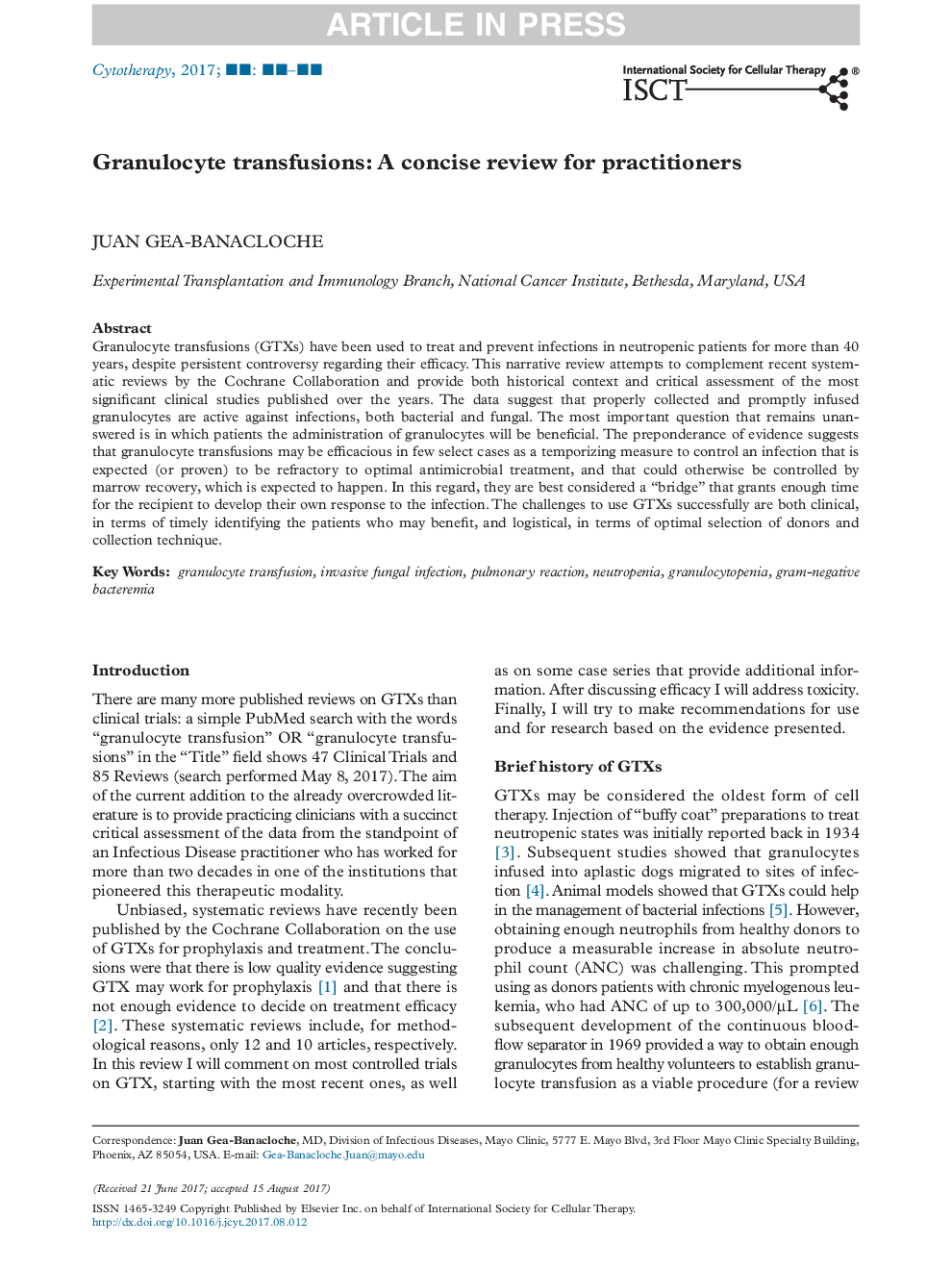| Article ID | Journal | Published Year | Pages | File Type |
|---|---|---|---|---|
| 8467072 | Cytotherapy | 2017 | 14 Pages |
Abstract
Granulocyte transfusions (GTXs) have been used to treat and prevent infections in neutropenic patients for more than 40 years, despite persistent controversy regarding their efficacy. This narrative review attempts to complement recent systematic reviews by the Cochrane Collaboration and provide both historical context and critical assessment of the most significant clinical studies published over the years. The data suggest that properly collected and promptly infused granulocytes are active against infections, both bacterial and fungal. The most important question that remains unanswered is in which patients the administration of granulocytes will be beneficial. The preponderance of evidence suggests that granulocyte transfusions may be efficacious in few select cases as a temporizing measure to control an infection that is expected (or proven) to be refractory to optimal antimicrobial treatment, and that could otherwise be controlled by marrow recovery, which is expected to happen. In this regard, they are best considered a “bridge” that grants enough time for the recipient to develop their own response to the infection. The challenges to use GTXs successfully are both clinical, in terms of timely identifying the patients who may benefit, and logistical, in terms of optimal selection of donors and collection technique.
Keywords
Related Topics
Life Sciences
Biochemistry, Genetics and Molecular Biology
Cell Biology
Authors
Juan Gea-Banacloche,
